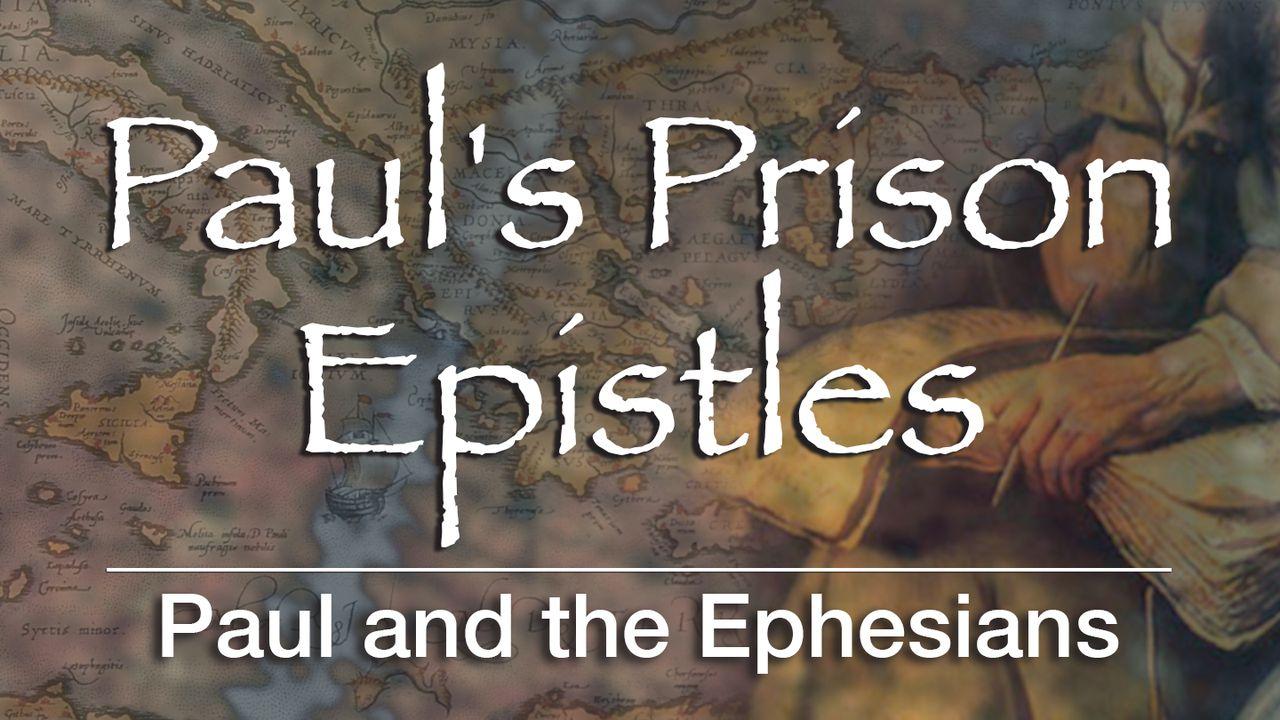Paul's Prison Epistles: Paul and the EphesiansSample

Code for Living: Ephesians 4:1-5:20
This code for living in the kingdom contains many different instructions on Christian behavior. But it can be summarized in the following way: we read of ecclesiastical order in the kingdom in Ephesians 4:1-16; purifying the kingdom in 4:17-5:20; domestic order in the kingdom in 5:21–6:9; and finally, the warfare of the kingdom in 6:10-20.
The section on ecclesiastical order in the kingdom, found in Ephesians 4:1-16, focuses primarily on positions of leadership, influence, and authority in the church. And Paul’s teaching emphasizes the ways these roles work together for the good of all. Citizens are not to be envious of one another, but rather, appreciative of the contributions their brothers and sisters make. When each person does his or her assigned tasks, it benefits Christ. And because it benefits Christ, it benefits the whole kingdom. Consider in this regard Paul’s words in Ephesians 4:8:
When he ascended on high, he led captives in his train and gave gifts to men (Ephesians 4:8).
In this passage Paul referred to Psalm 68:18, which portrays the Lord as a victorious king returning from battle. In Psalm 68 the Lord receives spoils of war from his conquered enemies. Paul, however, focused on what the Lord does with these gifts. Like ancient kings he shares them with his army. So, in a very real sense, these gifts benefit not only Christ, but the people of his kingdom.
Paul described some of these gifts in Ephesians 4:7-12:
To each one of us grace has been given as Christ apportioned it… It was he who gave some to be apostles, some to be prophets, some to be evangelists, and some to be pastors and teachers, to prepare God's people for works of service, so that the body of Christ may be built up (Ephesians 4:7-12).
Christ has divided his gifts in ways that enable the citizens of his kingdom to serve one another. And by this service, Christ’s kingdom is increased and strengthened.
Chapter 4:17–5:20 explains the issue of purifying the kingdom of light from the corruption that remains within it. This corruption, or sin, was bred and nourished within us when we were citizens of Satan’s kingdom of darkness. It is the product of our old, sinful nature, which we still retain even as citizens of the kingdom of light. But those within the kingdom of light who are believers also have a new nature that they can rely on to overcome their sin. As Paul wrote in Ephesians 4:22-24:
You were taught, with regard to your former way of life, to put off your old self, which is being corrupted by its deceitful desires; to be made new in the attitude of your minds; and to put on the new self, created to be like God in true righteousness and holiness (Ephesians 4:22-24).
God’s kingdom is to be as morally pure as possible; it is to reflect the character of its king. And this is for the benefit of the whole kingdom. After all, God blesses and rewards moral purity. So, by refraining from sin, and by doing good works, the citizens increase the blessedness of the kingdom and ensure their inheritance in it.
Scripture
About this Plan

This plan examines how Paul designed Ephesians to teach Christians how to build, maintain and thrive in God's kingdom.
More
We would like to thank Third Millennium Ministries for providing this plan. For more information, please visit:
http://thirdmill.org
Related Plans

Pawprints & Prayers: Devotions for Dog Lovers

The Last Half Hour: When Waiting Becomes Glory

Living With a Strong-Willed Child

The Journey of Yes

Dog Dad Devotions on Leadership, Loyalty and Love

A Brighter Future: A 5-Day Devotional

When God Says No!

See God’s Peace: 3 Days of Visio Divina

Acts Reading Plan
